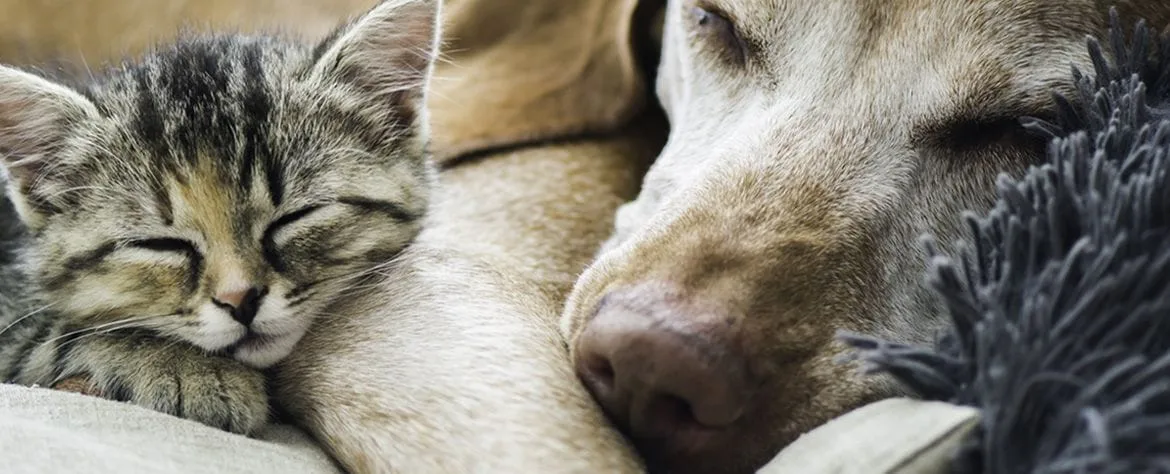Students interested in a career in veterinary medicine should begin their preparation by doing well in general science and biology in junior high school. They need to take a strong science, math, and biology program in high school. Admission into veterinary medical school is competitive. To be considered
Read more

When you hear the phrase domesticated animals, you probably automatically think of cats or dogs. But, what about fennec foxes, prairie dogs, pigs, sugar gliders, and even skunks? Although it’s not very common, each of these animals can also be domesticated. More and more people are opting out of getting a traditional pet and deciding to add a more unusual addition to their family.
Before you decide to become an owner of one of these animals, it’s important that you take into consideration the special care it will need compared to other, more typical pets. You will also need to review your state’s laws and regulations to make sure that it is legal to own one of these animals. Select one of the articles below to find out more about the options you have for domesticated animals as well as what they eat, what type of habitat they need, and more.
-
What We Learn
Category: Today's Veterinarian
-
Euthanasia
Category: Living With Your Pet, Saying Goodbye
You may have concluded that it's time to euthanize a pet. Or, maybe the vet told you that euthanizing is in the pet's best interest. Now, you have a responsibility. You now have to explain to your child what happens during the process. You also have to emphasize the fact that the procedure is humane
Read more -
Rainbow Bridge
Category: Living With Your Pet, Saying Goodbye
You understand that pets get older, they suffer from health problems, and several other issues can affect their lifespans. Children don't quite understand that pets reach the end of their lives. Your child may have a great deal of emotion when a pet passes or is going to be euthanized. They might also
Read more -
Pet Therapy
Category: Living With Your Pet, Children and Pets
If you have a child who is struggling, pet therapy for children is a proven therapy treatment that works for a variety of conditions. Your child will likely respond very well to an emotional support animal. Your veterinarian can offer more information about this form of treatment, too. What is Pet Therapy
Read more -
Advantages & Benefits
Category: Living With Your Pet, Children and Pets
If you’re still on the fence about getting a pet for your child, you should know that there are many benefits of owning a pet for children. Of course, there are responsibilities and other aspects of pet ownership that need to be considered. Owning a pet is a big decision. But there are definitely more
Read more -
Introductions
Category: Living With Your Pet, Children and Pets
Bringing an animal home to become a member of your family is certainly an exciting time. However, you want to be careful when your new cat or dog first meets your kids. Here are a few of our best tips on how to introduce new pets to children in a way that fosters a bond from the very start. Have Plenty
Read more -
Mistakes to Avoid as a Cat Owner
Category: Newsletter Library
-
Arthritis
Category: Pet Health, Orthopedics, Pet Health
The most common type of arthritis is osteoarthritis which can be due to wear and tear on joints from over use, aging, injury, or from an unstable joint such as which occurs with a ruptured ACL (anterior cruciate ligament) in the knee. The chronic form of this disease is called degenerative joint disease
Read more -
Leptospirosis
Category: Pet Health, Diseases and Viruses, Pet Health
Leptospirosis is a serious, life-threatening disease caused by a spiral shaped bacteria. Dogs, cats, other animals and even people can be infected through exposure to urine, bite wounds, ingestion of infected flesh, or contact with contaminated soil, water and even bedding. Certain environmental conditions
Read more -
Dentistry
Category: Pet Health, Digestive and Oral Health, Pet Health
Over 85% of dogs and cats have some type of periodontal disease. Periodontal disease simply means that the gums and bone that hold the teeth in place are being destroyed by oral bacteria. This preventable disease is the number one diagnosed disease in our pets, yet many animals suffer needlessly. Periodontal
Read more -
Feline Distemper
Category: Pet Health, Diseases and Viruses
Feline distemper or feline panleukopenia is a highly contagious viral disease of kittens and adult cats caused by the feline parvovirus. It is also called panleukopenia as it affects the bone marrow and causes low white blood cell counts. It is relatively common in unvaccinated cats and is often fatal,
Read more -
Bloat and Gastric Torsion
Category: Pet Health, Digestive and Oral Health
Bloat and gastric torsion is a serious condition and your pet should be rushed to the emergency room if this occurs. Certain breeds of dogs with deep chests and narrow waists, such as hounds, bouvier des Flandres, or doberman pinschers are more susceptible to a syndrome of gastric torsion and bloat. This
Read more -
Tapeworms
Category: Pet Health, Pests and Parasites
Tapeworms live in the digestive tracts of vertebrates as adults and often in the bodies of various animals as juveniles. In a tapeworm infection, adults absorb food predigested by the host, so the worms have no need for a digestive tract or a mouth. Large tapeworms are made almost entirely of reproductive
Read more -
Seizures
Category: Pet Health, Chronic Conditions
Seizures are common in dogs, but more unusual in cats. Seizures are just symptoms which can occur with many kinds of diseases. They can happen because of diseases outside the brain or inside the brain. Low blood sugar that can happen with an overdose of insulin or with a tumor of the pancreas can cause
Read more -
Ruptured Anterior Cruciate Ligament (ACL)
Category: Pet Health, Orthopedics
The rupture of the cruciate ligament is the most common knee injury in the dog. This injury has two common presentations. One is the young athletic dog playing roughly who acutely ruptures the ligament and is non-weight bearing on the affected hind leg. The second presentation is the older, overweight
Read more -
Luxating Patella
Category: Pet Health, Orthopedics
Luxating patella is a condition where the kneecap (patella) moves out of its normal position. Luxating patella is one of the most common knee joint abnormalities of dogs, but it is only occasionally seen in cats. It may affect one or both of the knees. In some cases it moves (luxates) towards the inside
Read more

Contact Us
We look forward to hearing from you
Location
Find us on the map
Office Hours
Our Regular Schedule
Office Hours
Monday:
8:00 am-5:30 pm
Tuesday:
8:00 am-5:30 pm
Wednesday:
8:00 am-5:30 pm
Thursday:
8:00 am-12:00 pm
Friday:
8:00 am-5:30 pm
Saturday:
8:00 am-12:00 pm
Sunday:
Closed
